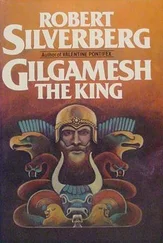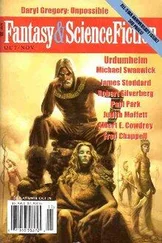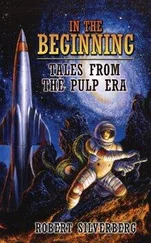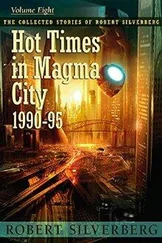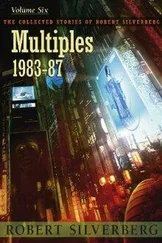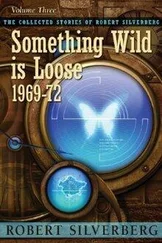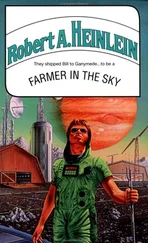Robert Silverberg - To Open the Sky
Здесь есть возможность читать онлайн «Robert Silverberg - To Open the Sky» весь текст электронной книги совершенно бесплатно (целиком полную версию без сокращений). В некоторых случаях можно слушать аудио, скачать через торрент в формате fb2 и присутствует краткое содержание. Год выпуска: 1967, Издательство: Ballantine Books, Жанр: Фантастика и фэнтези, на английском языке. Описание произведения, (предисловие) а так же отзывы посетителей доступны на портале библиотеки ЛибКат.
- Название:To Open the Sky
- Автор:
- Издательство:Ballantine Books
- Жанр:
- Год:1967
- ISBN:нет данных
- Рейтинг книги:5 / 5. Голосов: 1
-
Избранное:Добавить в избранное
- Отзывы:
-
Ваша оценка:
- 100
- 1
- 2
- 3
- 4
- 5
To Open the Sky: краткое содержание, описание и аннотация
Предлагаем к чтению аннотацию, описание, краткое содержание или предисловие (зависит от того, что написал сам автор книги «To Open the Sky»). Если вы не нашли необходимую информацию о книге — напишите в комментариях, мы постараемся отыскать её.
To Open the Sky — читать онлайн бесплатно полную книгу (весь текст) целиком
Ниже представлен текст книги, разбитый по страницам. Система сохранения места последней прочитанной страницы, позволяет с удобством читать онлайн бесплатно книгу «To Open the Sky», без необходимости каждый раз заново искать на чём Вы остановились. Поставьте закладку, и сможете в любой момент перейти на страницу, на которой закончили чтение.
Интервал:
Закладка:
Martell did not intend to yield. Elwhit was his opening wedge into Venus, and it would be madness to turn him away.
Later that same day there came another visitor, no friendlier than the horned frog. He was a burly Venusian of the lower caste, with armpit-daggers bristling on both sides of his chest He had not come to worship. He pointed to the reactor and said, “Shut that thing off and dispose of the fissionables within ten hours.”
Martell frowned. “It’s necessary to our religious observance.”
“It’s fissionables. Not allowed to run a private reactor here.”
“There was no objection at customs,” Martell pointed out. “I declared the cobalt-60 for what it was and explained the purpose. It was allowed through.”
“Customs is customs. You’re in town now, and I say no fissionables. You need a permit to do what you’re doing.”
“Where do I get a permit?” asked Martell mildly.
“From the police. I’m the police. Request denied. Shut that thing off.”
“And if I don’t?”
For an instant Martell thought the sell-styled policeman would stab him on the spot The man drew back as though Martell had spat in his face. After an ugly silence he said, “Is that a challenge?”
“It’s a question.”
“I ask you on my authority to get rid of that reactor. If you defy my authority, you’re challenging me. Clear? You don’t look like a fighting man. Be smart and do as I say. Ten hours. You hear?”
He went out.
Martell shook his head sadly. Law enforcement a matter of personal pride? Well, it was only to be expected. More to the point: they wanted his reactor off, and without the reactor his chapel would not be a chapel. Could he appeal? To whom? If he dueled with the intruder and slew him, would that give him the right to run the reactor? He could hardly take such a step, anyway.
Martell decided not to give up without a struggle. He sought the authorities, or what passed for authorities here, and after spending four hours waiting to be admitted to the office of a minor official, he was told clearly and coldly to dismantle his reactor at once. His protests were dismissed.
Weiner was no help, either. “Shut the reactor down,” the Martian advised.
“I can’t function without it,” said Martell. “Where’d they get this law about private operation of reactors?”
“They probably invented it to take care of you,” Weiner suggested amiably. “There’s no help for it, Brother. You’ll have to shut down.”
Martell returned to the chapel. He found Elwhit waiting on the steps. The boy looked disturbed.
“Don’t close,” he said.
“I won’t.” Martell beckoned him inside. “Help me, Elwhit. Teach me. I need to know.”
“What?”
“How do you move things around with your mind?”
“I reach into them,” the boy said. “I catch hold of what’s inside. There’s a strength. It’s hard to say.”
“Is it something you were taught to do?”
“It’s like walking. What makes your legs move? What makes them stand up underneath you?”
Martell simmered with frustration. “Can you tell me what it feels like when you do it?”
“Warm. On top of my head. I don’t know. I don’t feel much. Tell me about the electron, Brother Nicholas. Sing the song of photons to me.”
“In a moment,” Martell said. He crouched down to get on the boy’s eye level. “Can your mother and father move things?”
“A little. I can move them more.”
“When did you find out you could do it?”
“The first time I did it.”
“And you don’t know how you—” Martell paused. What was the use? Could a ten-year-old boy find words to describe a telekinetic function? He did it, as naturally as he breathed. The thing to do was to ship him to Earth, to Santa Fe, and let the Noel Vorst Center for the Biological Sciences have a look at him. Obviously, that was impossible. The boy would never go, and it would hardly be proper to spirit him away.
“Sing me the song,” Elwhit prodded.
“In the strength of the spectrum, the quantum, and the holy angstrom—”
The chapel door flew open and three Venusians entered: the police chief and two deputies. The boy pivoted instantly and skittered past them, out the back way.
“Get him!” the police chief roared.
Martell shouted a protest. It was useless. The two deputies pounded after the boy, into the yard. Martell and the police chief followed.
The deputies closed in on the boy. Abruptly, the meatier one was flipping through the air, legs kicking violently as he headed for the deadly patch of Trouble Fungus in the underbrush. He landed hard. There was a muffled groan. Trouble Fungus, Martell had learned by watching it, moved quickly. The carnivorous mold would devour anything organic; its sticky filaments, triggering with awesome speed, went to work instantly. The deputy was trapped in a network of loops whose adhesive enzymes immediately began to operate. Struggling only made it worse. The man thrashed and tugged, but the loops multiplied, stapling him to the ground. And now the digestive enzymes were coming into play. A sweet, sickly odor rose from the Trouble Fungus clump.
Martell had no time to study the process of dissolution. The man caught in his fatal collars of slime was close to death, and the surviving deputy, his face almost black with fear and rage, had drawn a knife on the boy.
Elwhit knocked it out of his hand. He tried to gather strength for another cast into the fungus patch, but his face was sweat-speckled, and bunching muscles in his cheeks told of the inward struggle. The deputy rocked and swayed, resisting the telekinesis. Martell stood frozen. The police chief bounded forward, knife on high.
“Elwhit!” Martell screamed.
Even a telekinetic has no way of defending himself against a stab in the back. The blade went deep. The boy dropped. In the same moment, with the pressure withdrawn, the deputy slipped and fell on his face. The chief seized the wounded, convulsing boy and hurled him into the Trouble Fungus. He landed beside the soft mass of the dead deputy, and Martell watched in honor as the sinister loops locked into place. Sickness assailed him. He ran halfway through the disciplinary techniques before his mind would work properly again.
By then the police chief and his deputy had recovered their calmness. With scarcely a look at the two dissolving corpses, they seized Martell and hauled him back into the chapel.
“You killed a boy,” Martell said, breaking loose. “Stabbed him in the back. Where’s your honor?”
“I’ll settle that before our court, priest. The boy was a murderer. And under the spell of dangerous doctrines. He knew we were closing you down. It was a violation to be here. Why isn’t that reactor off?”
Martell groped for words. He wanted to say that he did not intend to accept defeat, that he was staying on here, determined to fight even to the point of martyrdom, despite their order that he shut up shop. But the brutal killing of his only convert had smashed his will.
“I’ll shut the reactor down,” he said hollowly.
“Go and do it.”
Martell dismantled it. They waited, exchanging pleased glances when the light flickered out. The deputy said, “It isn’t a real chapel without the light burning, is it, priest?”
“No,” Martell replied. “I’m closing the chapel, too, I guess.”
“Didn’t last long.”
“No.”
The chief said, “Look at him with his gills flapping. All tricked out to look like one of us, and who’s he fooling? We’ll teach him.”
They moved in on him. They were burly, powerful men. Martell was unarmed, but he had no fear of them. He could defend himself. They neared him, two nightmare figures, grotesquely inhuman, their eyes bright and slitted, inner lids sliding tensely up and down, small nostrils flickering, gills atremble. Martell had to force himself to remember that he was a monster as much as they; he was a changed one now. Their brother.
Читать дальшеИнтервал:
Закладка:
Похожие книги на «To Open the Sky»
Представляем Вашему вниманию похожие книги на «To Open the Sky» списком для выбора. Мы отобрали схожую по названию и смыслу литературу в надежде предоставить читателям больше вариантов отыскать новые, интересные, ещё непрочитанные произведения.
Обсуждение, отзывы о книге «To Open the Sky» и просто собственные мнения читателей. Оставьте ваши комментарии, напишите, что Вы думаете о произведении, его смысле или главных героях. Укажите что конкретно понравилось, а что нет, и почему Вы так считаете.

